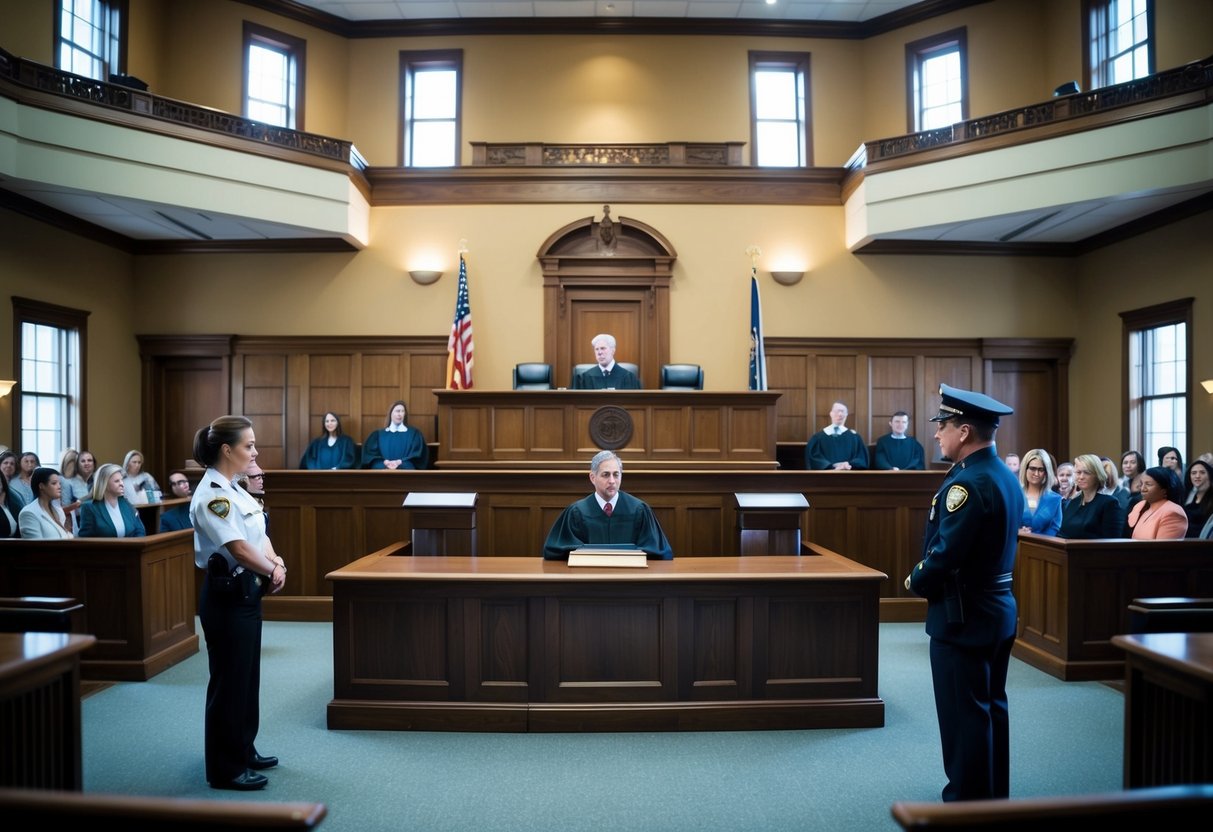Overview of Felony Cases in Marietta
Felony cases in Marietta can be complex, involving various degrees of crime and legal proceedings. The process includes understanding Georgia’s felony laws and the roles of indictments and convictions.
Understanding Felonies in Georgia
Felonies in Georgia are categorized based on the severity of the crime. There are various degrees of felonies, with first-degree felonies being the most severe. Examples include murder and armed robbery. Less severe felonies, such as theft over a certain amount, fall under lower degrees.
The Georgia criminal law system is strict in how it differentiates between misdemeanors and felonies. The penalties for felonies often include long prison sentences, heavy fines, and a permanent criminal record. Knowing the distinction helps residents understand their rights and the potential consequences.
The Role of Indictments and Convictions
An indictment is a formal charge that starts the felony prosecution process. In Marietta, a grand jury typically issues an indictment based on evidence presented by the prosecutor. It’s a critical step, determining whether there is enough evidence to proceed to trial.
A conviction happens if the defendant is found guilty of the felony either by trial or plea. Convictions carry serious consequences including imprisonment, loss of certain civil rights, and severe fines. The defense plays a vital role in trying to reduce charges or achieve an acquittal. Law offices in Marietta specialize in felony defense to protect the accused’s rights throughout the process.
Understanding these elements provides insight into the gravity of felony cases and their impact on those involved.
Notable Categories of Marietta Felonies

Marietta felonies cover a range of serious offenses. These include violent crimes, property and financial offenses, and drug-related felonies.
Violent Crimes and Sentencing
The most common violent felonies in Marietta include assault, domestic violence, murder, and armed robbery. Sentences for these crimes are harsh and often involve long prison terms. Felonious assault and domestic violence frequently make headlines due to their severe impact on victims and the community.
Murder cases are the most severe, carrying life sentences or even the death penalty. Armed robbery entails significant prison time due to the use of weapons and threats. Each violent crime type has specific legal definitions and sentencing guidelines that ensure justice is served.
Property and Financial Offenses
Property crimes in Marietta often involve theft, grand theft, fraud, and forgery. Burglary and breaking and entering are common and usually result in prison sentences. These crimes impact individuals and businesses, leading to substantial property losses.
Fraud cases, including schemes that deceive victims for financial gain, are complex and involve large sums of money. Forging documents or creating fake identities are also serious, attracting heavy penalties. Grand theft cases typically involve property worth large amounts, making them more severe.
Drug-Related Felonies and Their Impact
Drug-related felonies are a significant concern in Marietta. There’s a high incidence of trafficking, possession of methamphetamine, fentanyl, and heroin. An aggravated possession of drugs can result in long sentences and significant fines.
Trafficking drugs like fentanyl and methamphetamine often leads to federal charges. The rise in fentanyl-related compounds has escalated the enforcement and penalties. These felonies not only harm the individuals involved but also significantly impact the community by contributing to higher crime rates and public health issues.
Key Aspects of the Legal Process

In felony cases in Marietta, the legal process involves various important elements. There are specific rights for defendants and possible outcomes that affect their future.
Defendants’ Rights and Legal Representation
In Marietta, defendants in felony cases have specific rights. They have the right to a defense, which involves hiring a criminal defense attorney or receiving a public defender if they cannot afford one. Defendants are entitled to know the charges against them, the right to an attorney during police interrogations, and the right to a fair trial.
Legal representation is crucial. An attorney with experience can argue on the defendant’s behalf, negotiate plea deals, and provide consultations on the best legal strategies. Lawyers from Frye Law Group and similar firms specialize in criminal cases, including serious charges like arson and assault. They gather evidence, call witnesses, and ensure the defendant’s rights are protected throughout the legal process.
Consequences and Rehabilitation
A felony conviction in Marietta carries serious consequences. A guilty verdict can result in a prison sentence, fines, or community service. Some felonies are punishable by years in prison or even life sentences.
After serving time, individuals may face parole or probation, with strict rules about housing and employment. Rehabilitation programs aim to reintegrate offenders through job training, substance abuse counseling, and education. Juvenile offenders have separate systems focused on rehabilitation rather than punishment.
The ultimate goal of the legal system is to balance punishment with the possibility of rehabilitation, ensuring community safety and helping former offenders rebuild their lives.




